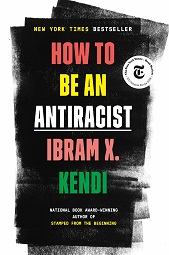 Tim Challies delivers an appropriately stinging review of Brian McLaren’s new book A New Kind of Christianity. Among other things, Challies observes that McLaren loves Jesus but hates God. In fact, Challies is convinced that this book is a de-conversion narrative that shows that McLaren has unambiguously apostatized from the Christian faith. He writes:
Tim Challies delivers an appropriately stinging review of Brian McLaren’s new book A New Kind of Christianity. Among other things, Challies observes that McLaren loves Jesus but hates God. In fact, Challies is convinced that this book is a de-conversion narrative that shows that McLaren has unambiguously apostatized from the Christian faith. He writes:
‘He denies the Fall, he denies original sin, he denies human depravity, he denies hell…
‘Here, in A New Kind of Christianity it’s as if McLaren is screaming “I hate God!” at the top of his lungs. And swarms of Christians are looking at him with admiration and saying, “See how that guy loves God?” I don’t know what McLaren could do to make the situation more clear. In fact, his book is nearly indistinguishable from many of the de-conversion narratives that are all the rage today. Compare it with Bart Ehrman’s God’s Problem and you’ll see many of the same arguments and the same misgivings; you’ll find, though, that Ehrman is at least more honest. He at least has the integrity to walk away from faith altogether rather than reinventing God in his own image.
‘McLaren says he would prefer atheism over belief in the God so many of us see in Scripture. Well, he is not far off. This new kind of Extreme Makeover: God Edition Christianity is no Christianity at all. It is not a faith made in the image of Jesus Christ, but a faith made in the image of a man who despises God and who is hell-bent on dragging others along with him as he becomes his own god.’
I’ve read part of McLaren’s book, but now I’m wondering if I’ll spend precious time to read the rest of it. From what I’ve read, Challies has not overstated his case. Read the rest of Challies’ review here.




14 Comments
thesauros
Thank you for helping me save money by not purchasing this book.
julie
Yes thanks for the link. It was a good review but I have one big problem with it.Challies implies that it is possible to love Jesus while hating God. This is simply impossible. The Father and Son are in perfect harmony and unity with one another. To love one is to love the other. It is impossible to do otherwise. Maybe maclaren thinks this is possible, but Challies should clearly say that it is simply not possible. The true Jesus Christ, who is God the Son, loves the True Father God and came to do His will. He was seeking God’s glory and He taught just what God told Him to teach. Jesus’ words were God’s words. Jesus’ will was God’s will. Jesus said:
All that the Father gives me will come to me, and whoever comes to me I will never cast out.
(John 6:37)
So Jesus answered them, “My teaching is not mine, but his who sent me. (John 7:16)
If anyone’s will is to do God’s will, he will know whether the teaching is from God or whether I am speaking on my own authority.
(John 7:17)
The one who speaks on his own authority seeks his own glory, but the one who seeks the glory of him who sent him is true, and in him there is no falsehood.
(John 7:18)
There are many verses throughout the gospel of John that make this very, very clear. How can you claim to love Jesus and hate His Father who sent Him?
Darius
Julie,
I am certain Challies would agree with you that you can’t divide Jesus and God. He’s merely pointing out that McLaren loves to pit the two against each other as if they can be divided.
Darius
Mike Wittmer is doing an in-depth review of McLaren’s book here: http://mikewittmer.wordpress.com/
Dee Stewart
great mention of this book. i have been challenged by what this book implies as well. glad to know that others agree.
Donald Johnson
I have not read McLaren, but it is true that one should read the Bible with a Hebraic worldview, not a Greco-Roman one, as it was writen by people who thought like Hebrews. There are WAY too many attempts to read the Bible as if it was like Euclid’s Elements, when it is not that at all.
mike
@donald johnson,
good thoughts, but i slightly disagree. we absolutely MUST read the new testament in light of its greco-roman context. paul’s letters, for instance, are addressed to christians living in the roman empire, and so the apostle uses “local color” to teach theology. these churches, however, were made of jews AND gentiles, so i really think we should strive to know the hebrew bible, its context, the new testament, its context, and as much as possible about the cultural context of writers, audiences, and ourselves as readers. just my 2 cents.
on another thought, yikes, i had NO idea mclaren was so far out there. i thought he was just a touchy-feely evangelical, but this sounds like he’s not even christian. i think i’ll check this book out myself and see what’s up.
@denny,
would you really start reading the book but not finish it because you don’t agree with it? what about when someone asks you about it? would you say “i started reading it but someone said it was bad so i stopped”? why not read it, know what he says, and make your own informed critique? just a thought.
Charlie
Not surprised at the content of this book. Though, I thought that the announcement that McLaren went off the deep end came with his book “Everything Must Change”
this is a good sign post telling us that it is right to ask the tough question about someone and what they are teaching. To many people acted softly about McLaren at the beginning. But wisdom is justified by her children. Those who asked the tough questions are proved right in doing so.
Though, we must not gloat about our foresight. We must take heed lest we fall as well. McLaren did not begin with this book, he began many books back. But he was on a path that took him to this book. May we love one another enough to keep one another from starting on the same path he started on.
Donald Johnson
I think I agree with you, here is the way I would word it. Paul was a Hebrew and apostle to the gentiles, so it is true that AT TIMES he used Greco-Roman type arguments and those times need to be discerned. It is possible others did also, and they would need to be discerned.
The basic idea is context is essential, including cultural context.
Scott
Judaism was very Hellenized, though it maintained its strict monotheism. You just can’t separate what is “purely greco-roman” from what is purely “hebrew.” That’s an entirely false dichotomy.
Brian Krieger
Don:
I agree that we read in light of the at-the-time culture, but must also maintain a healthy dose of the fact that God authored the words to be transcendent (in one way or another). Taking the at-the-time culturally relative-izing approach to reading scripture (particularly when it comes to prescriptive versus descriptive) is equally damaging as porting every concept to 20th century America without regard to the original culture. The culturally static approach you seem to posit is dangerous at best. But I could also be completely misunderstanding how you mean to apply it.
Donald Johnson
There are MANY terms in the NT that SHOULD find their meaning in Jewish works as opposed to Greco-Roman works. This is a fake-out for some as the NT we have is in Greek. In other words, the Greek/Roman meaning is a FAIL.
Judaism outside of Judea and the Galil was Hellenized (hence the LXX at Alexandria), but not those 2 places near as much.
The words in ANY text have their meaning in the culture they were written in, else they are just marks on a page.
Also, the words were written FOR us, but not TO us and it is a big FAIL to read them as if TO us, yet it is attempted way too often.
mike
don,
i might just add that, for me, martin hengel’s work successfully refutes the idea that judea and galilee were not hellenized. he provides tons of inscriptions, primary sources, secondary sources, papyri, etc.
Donald Johnson
I have not read Hengel, but I got this from the 1 reviewer of his book “Judaism and Hellenism: Studies in Their Encounter in Palestine During the Early Hellenistic Period”
Martin Hengel, considered one of the top biblical scholars in the world, published this book about 1970. It has since influenced a generation of scholars, being cited in hundreds of publications. The book was published in two volumes, with volume one being the book itself, and volume two being the notes and index.
The old History of Religions theory had crashed to an inglorious end when Hengel published this book. Hengel’s conclusion was that “It is not possible to say that Judaism maintained a straight course through the Hellenistic period…Still less can it be claimed that it was completely permeated by the Hellenistic spirit” (p310).
The ‘wisdom school’ was influenced by Greek thought, which among the people took on a strong eschatological expectation. Still, Hengel insists that Judaism maintained its singularity. “The almost complete fusion of religion and nationalism… prevented any assimilation” (p 313).
Among the Greek influences were the 100 years Palestine was under the Ptolemies, Attic pottery, the Greek language, irrigation, and minted money. “Interest in Hellenistic civilization, however, remained predominantly limited to the well-to-do aristocracy of Jerusalem” (p 56). So did that main pipeline of Hellenism, Greek schools.
Earlier schools among the Jews were “exclusive, status-conscious… scribal schools” (p 80). Among the Jewish people, even as Hellenism was influencing their elite, elementary schools were formed that had enormous impact on the common people. The idea was to educate every Jewish boy. Simeon b Setah ordered all Jewish boys to go to school. So did Jubilees.
“The school age was set a 6-7…non-Jews and Samaritans were prohibited as teachers…Instead of Homer, the Hebrew Bible, especially the Pentateuch, held pride of place in instruction” (p 82). Instruction was to continue for 10 years. The Cynic philosopher Oenomaus said, “‘Go and observe their synagogues and schools..you cannot succeed'” in changing the Jews, because of those schools and synagogues.
The result of this education system was a burst of literary creativity. “It is astonishing what creative forces were developed in their small and relatively remote Jewish temple state measuring barely more than twenty-four miles across, during the Persian and early Hellenistic period” (p 113).
Hengel argues that the Septuagint was influenced very little by Hellenism. And that Ben Sira “By asserting that all wisdom comes from the Lord…formulates a Jewish declaration of war against Hellenism” (p 138).
——-end of review
It sounds to me like Hengel says the Jews were NOT Hellenized.
The books of Maccabees (in the Apocrypha) give further evidence that Hellenization was fought.
In any case, there are quite a few instances where using the Greek def. for a Greek NT word results in a FAIL in interpretation due to the neglect of what it meant to Jews.